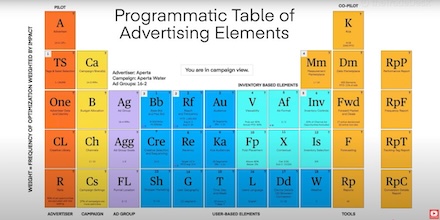 |
||||||||||
|
||||||||||
| Scope3’s Brand Safety Tool: A Solution or a Bandaid for a Larger Problem? |
 |
| Scope3 recently launched Brand Standards, an AI-driven brand safety solution challenging industry leaders like DoubleVerify and Integral Ad Science. Advertisers can use the tool to create AI agents to assess content suitability based on specific brand values, blocking unsuitable content in real time while ensuring ads flow through verified supply paths. Advertisers also gain transparency, with explanations for why content is approved or rejected. Early adopters include Meta, Amazon DSP, Dotdash Meredith, and Index Exchange. The launch comes amid scrutiny of existing brand safety tools following an Adalytics report revealing major brands' ads on a site hosting child abuse material. Scope3 CEO Brian O'Kelley criticized competitors for serving ads before fully classifying content, a risk Brand Standards avoids by restricting unclassified placements. Solution? Jamie Barnard, CEO and Co-founder of Compliant, a Scope3 data provider launch partner, calls this a "reset for digital advertising." He highlights how Scope3's Media Platform will integrate Compliant's Data Integrity Agent to ensure purchased media meets data quality, integrity, and compliance standards—eliminating low-value inventory and reducing risk. Bandaid? However, some industry voices remain skeptical. Kerel Cooper, CMO of GumGum, argues this is just another iteration of flawed brand safety approaches. "For years, the industry has been layering new technologies onto a fundamentally flawed approach to brand safety—first keyword blocking, then AI classification, and now agentic AI. But the problem isn’t the tools; it’s the model itself. Instead of trying to fix a broken system, we need to move beyond it entirely," said Cooper. He instead advocated for contextual alignment as a smarter, privacy-conscious solution. For Cooper, contextual is inherently brand safe. – AB |
 |
| Unilever’s Big Influencer Bet: Trend or Temporary Flex? |
| Unilever is going all-in on influencers. CEO Fernando Fernandez is kicking traditional advertising to the curb—committing half its ad budget to social media and massively scaling and multiplying influencer partnerships by 20x (especially in markets like India and Brazil). It’s bold and buzz-worthy, but is it a new blueprint for the industry or just a risky bet? A move like this isn’t coming out of nowhere. Data projected U.S. marketers to spend $10 billion on social media-sponsored content this year, and 76% of execs say their influencer budgets are climbing. Brands are looking beyond the walled gardens to invest in direct-to-consumer channels, but influencer marketing isn’t risk-free—measurement’s shaky, brand safety is a gamble, brands risk getting tangled up in ethical controversies, and authenticity can vanish quicker than trending hashtags. Should publishers panic? Not just yet. Publishers can puff their chests and prove audience value, emphasizing trust, transparency, and measurable results. And while it might not be time to TikTok-ify all of your content, strengthening relationships with your audiences, diversifying content distribution channels, and keeping an eye on this trend couldn’t hurt. — LdJ |
| Adalytics Loses Bid to Dismiss Defamation Lawsuit |
Last Tuesday, Adalytics lost its motion to dismiss a defamation lawsuit filed by Colossus SSP. The court ruled that Colossus SSP's claims of defamation, injurious falsehood, and false advertising could proceed. The suit stemmed from a report in which Adalytics claimed that Colossus misdeclares user IDs in the bid requests it sends to The Trade Desk to make its inventory appear more valuable than it actually is. In a letter to customers, Colossus SSP stated that Adalytics' report attempted to discredit its business through "numerous inaccuracies and misleading statements." The company pointed to Adalytics' August 2024 motion to dismiss, claiming that its report made no accusations of fraud and did not assert knowledge or intent of wrongdoing. Colossus called this a key milestone in its case, arguing that Adalytics had distanced itself from its original claims when challenged in court. – AB |
| @{optoutfooterhtml}@ |









.jpg)